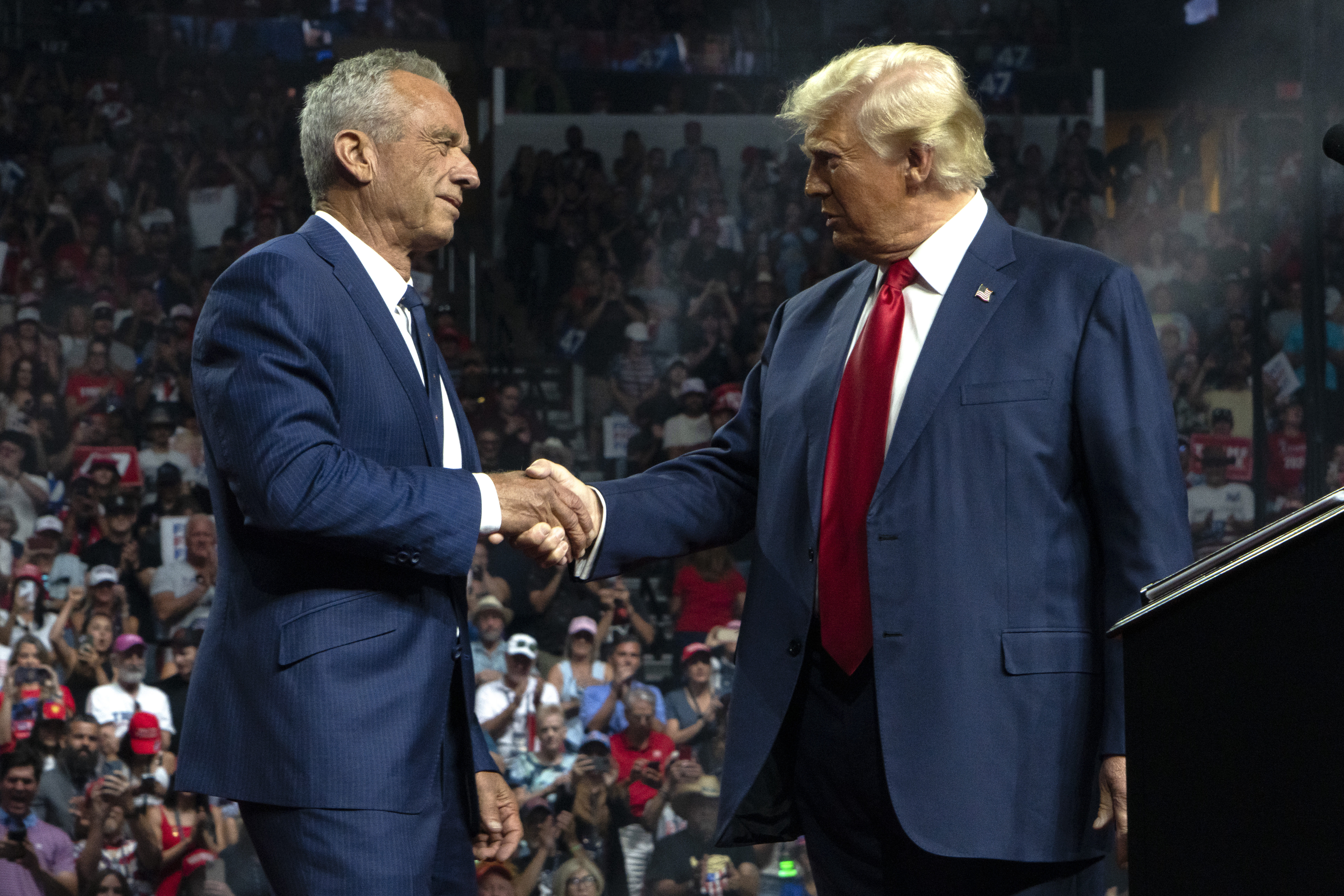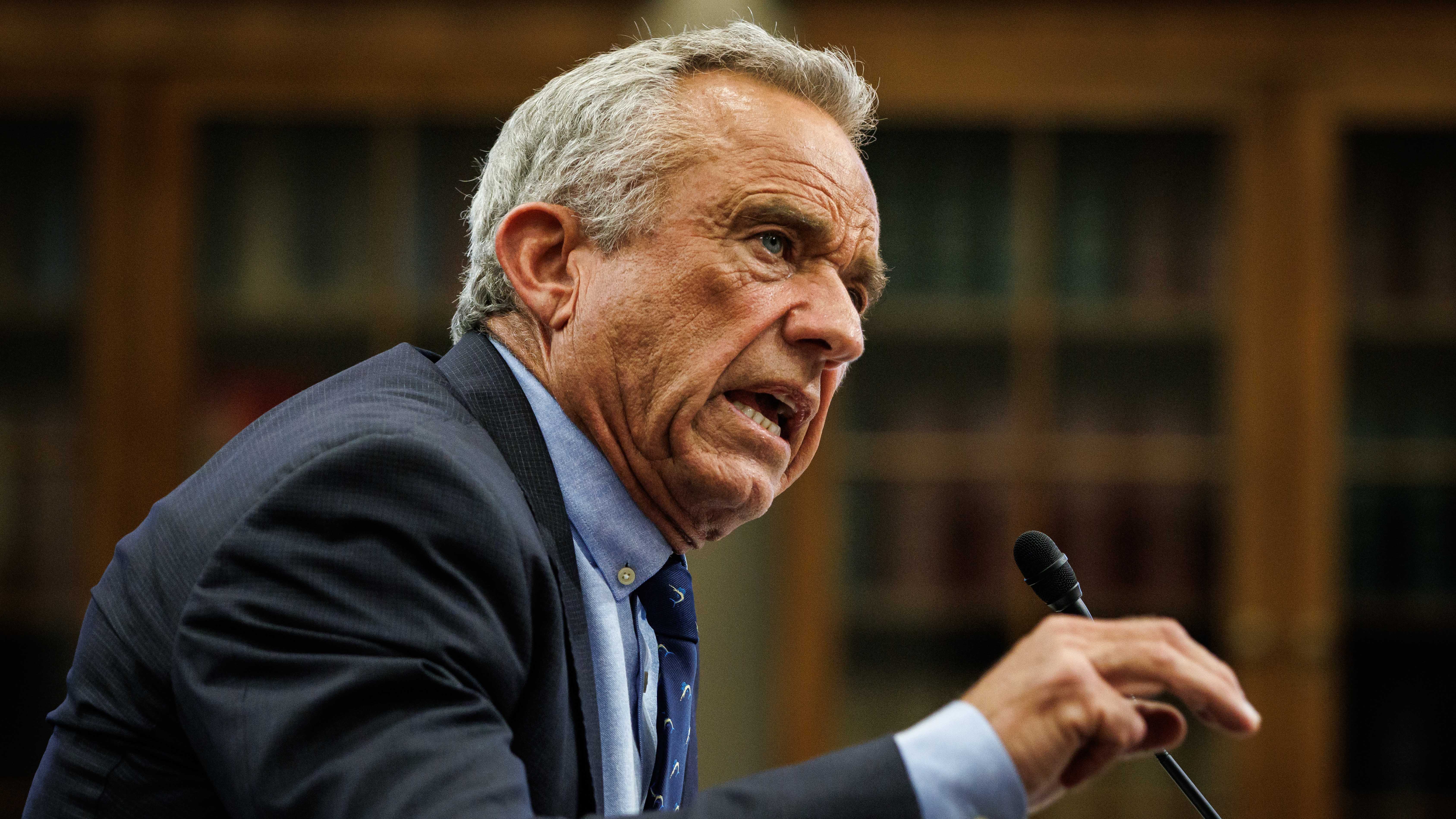Kennedy's Vaccine Conspiracy: Unlocking the VSD's Secrets
Decoding Kennedy's Vaccine Conspiracy: The VSD Deep Dive
Introduction: Unveiling the Mystery of the Vaccine Safety Datalink
For years, the shadow of doubt has been cast upon vaccines, often fueled by misinformation and conspiracy theories. One name consistently surfaces in these debates: Robert F. Kennedy Jr. And at the heart of his claims, like a buried treasure map, lies a database known as the Vaccine Safety Datalink, or VSD. Is it truly a vault of suppressed truths, or just another brick in the wall of unfounded suspicion? Let’s dive in and explore this digital enigma.
The Claim: Buried Evidence of Vaccine Harm?
Kennedy has repeatedly suggested that the VSD holds the key to unlocking evidence of widespread harm caused by vaccines, ranging from autism to sudden death. He posits that government agencies, specifically the CDC, are deliberately concealing this information. But is there any merit to these claims?
“For decades, the CDC has kept a tight grip on the Vaccine Safety Datalink, concealing vital vaccine safety information from the public,” Kennedy reportedly stated. This paints a picture of deliberate obstruction, but let’s examine the VSD itself before jumping to conclusions.
What is the Vaccine Safety Datalink (VSD)?
The Vaccine Safety Datalink (VSD) is a collaborative project between the Centers for Disease Control and Prevention (CDC) and several integrated healthcare organizations. Think of it as a massive, secure vault containing de-identified medical records. This data allows researchers to study the safety of vaccines across a large and diverse population. It’s a proactive effort to monitor and understand any potential adverse events associated with vaccinations.
The Purpose of the VSD
The primary goal of the VSD is simple: to monitor vaccine safety. Researchers use the data to identify any potential links between vaccines and adverse health outcomes. This allows them to investigate these links further and determine whether a causal relationship exists. It's a critical tool for maintaining public trust in vaccines.
Data Security and Privacy
One of the most important aspects of the VSD is its commitment to data security and privacy. All data is de-identified, meaning that any personal information that could identify an individual is removed. This ensures that the privacy of patients is protected. Think of it as a heavily guarded fortress, protecting sensitive information while still allowing for vital research.
How the VSD Works: A Step-by-Step Look
Understanding the inner workings of the VSD is crucial to debunking the myths surrounding it. How does it collect data? How is it analyzed? Let’s break it down.
- Data Collection: Participating healthcare organizations submit de-identified medical records to the VSD.
- Data Analysis: Researchers analyze the data to identify potential links between vaccines and adverse events.
- Investigation: If a potential link is identified, researchers conduct further investigations to determine if a causal relationship exists.
- Transparency: The findings of these investigations are published in peer-reviewed journals and made available to the public.
Debunking the Conspiracy: Is the VSD Being Suppressed?
Kennedy’s claim that the CDC is “concealing vital vaccine safety information” is a serious accusation. But is there any evidence to support it? The reality is that the VSD's findings are regularly published in scientific journals and presented at conferences. Transparency is a key principle of the VSD project.
Published Research: Evidence of Transparency
A quick search of scientific literature reveals numerous studies that have used VSD data to investigate vaccine safety. These studies cover a wide range of topics, from the risk of febrile seizures after vaccination to the potential link between vaccines and autism. The sheer volume of published research contradicts the claim that the VSD is being suppressed.
Addressing Autism Concerns: The Autism-Vaccine Link Debunked
Perhaps the most persistent and damaging claim is that vaccines cause autism. This theory has been thoroughly debunked by numerous studies, including those using VSD data. These studies have consistently found no evidence of a link between vaccines and autism. The science is clear: vaccines do not cause autism.
Understanding Causation vs. Correlation
One of the biggest challenges in interpreting data from the VSD is distinguishing between causation and correlation. Just because two events occur around the same time doesn’t mean that one caused the other. Imagine seeing more ice cream sales when there are more shark attacks. Does that mean ice cream attracts sharks? Of course not! It just means both happen more often in the summer. Similarly, someone may develop a condition after vaccination, but that doesn't automatically mean the vaccine caused it.
The Role of Scientific Rigor
Researchers using the VSD employ rigorous statistical methods to determine whether a causal relationship exists between vaccines and adverse events. This involves controlling for other factors that could influence the outcome and using appropriate statistical tests to assess the strength of the evidence. It’s like detective work, carefully gathering evidence and ruling out other suspects before pointing the finger.
The Importance of Vaccine Safety Monitoring
While the VSD has consistently shown that vaccines are safe and effective, it’s still important to continue monitoring vaccine safety. New vaccines are constantly being developed, and it’s crucial to ensure that they are safe for everyone. The VSD plays a vital role in this ongoing effort.
Addressing Public Concerns: Building Trust
Public trust is essential for the success of any vaccination program. By being transparent about vaccine safety and addressing public concerns, we can help to build trust in vaccines and encourage people to get vaccinated. Open communication and honest answers are the best weapons against misinformation.
Robert F. Kennedy Jr.'s Involvement: A Closer Look
Kennedy's intense focus on the VSD stems from his long-held belief that vaccines are harmful. He has repeatedly called for greater access to the database and has even proposed using it to conduct his own studies. However, his views are often at odds with the scientific consensus.
Potential Bias: Separating Facts from Opinions
It's important to approach Kennedy's claims with a critical eye, considering his established views on vaccines. While his passion for public health may be genuine, his bias could influence his interpretation of the data. It’s crucial to rely on evidence-based science rather than personal opinions.
The Future of the VSD: Continued Monitoring and Research
The VSD is a valuable resource that will continue to play a crucial role in monitoring vaccine safety for years to come. As new vaccines are developed and introduced, the VSD will be essential for ensuring their safety and effectiveness. It's a living, breathing database that adapts to the changing landscape of public health.
Expanding Access: Striking a Balance
While transparency is important, it's also crucial to protect the privacy of individuals whose data is included in the VSD. Finding the right balance between transparency and privacy is a key challenge for the future of the VSD. It's a delicate dance, ensuring both access and security.
The Wider Implications: Combating Misinformation
The controversy surrounding the VSD highlights the broader issue of misinformation about vaccines. False claims and conspiracy theories can erode public trust in vaccines and lead to decreased vaccination rates, which can have serious consequences for public health. Fighting misinformation requires a multi-pronged approach, including education, open communication, and debunking false claims.
The Real Danger: The Erosion of Public Trust
The true casualty in this debate isn't necessarily the VSD itself, but the public's trust in scientific institutions. When misinformation spreads unchecked, people become skeptical of experts and authorities, making it harder to address real public health challenges. Rebuilding that trust requires honesty, transparency, and a commitment to evidence-based decision-making.
Conclusion: Separating Fact from Fiction
The Vaccine Safety Datalink is not a repository of suppressed evidence of vaccine harm, but rather a vital tool for monitoring vaccine safety. While concerns about vaccine safety are understandable, they should be addressed with evidence-based science, not conspiracy theories. The VSD is a testament to the commitment of public health officials to ensuring the safety and effectiveness of vaccines. Let's rely on verifiable data and expert consensus to make informed decisions about our health and the health of our communities.
Frequently Asked Questions (FAQs)
1. Is my personal medical data safe within the VSD?
Yes. All data in the VSD is de-identified, meaning any information that could be used to identify an individual is removed. The VSD prioritizes privacy and adheres to strict security protocols.
2. Can anyone access the data within the VSD?
Access to the VSD is restricted to authorized researchers who have undergone rigorous training and have a clearly defined research protocol approved by the CDC and participating healthcare organizations. This ensures responsible and ethical use of the data.
3. Has the VSD ever identified a safety concern with a vaccine?
Yes. The VSD has identified rare adverse events following vaccination, prompting further investigation and, in some cases, changes to vaccine recommendations. This demonstrates the VSD’s effectiveness in monitoring and responding to potential safety concerns.
4. How can I learn more about the findings of studies using the VSD?
The findings of studies using the VSD are published in peer-reviewed scientific journals and are often summarized on the CDC website. You can search for "Vaccine Safety Datalink" on PubMed or Google Scholar to find relevant publications.
5. What is the CDC's role in overseeing the VSD?
The CDC provides funding, technical expertise, and oversight for the VSD. They collaborate with participating healthcare organizations to ensure the integrity and security of the data, as well as the rigor of the research conducted using the VSD.

